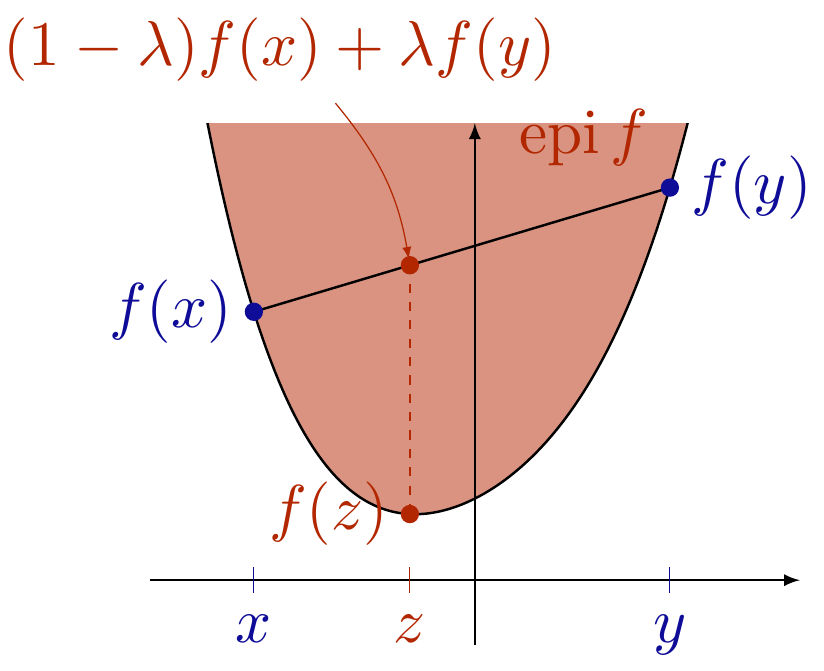
Welcome to the homepage of the
Mathematical Optimization for Data Science Group
Department of Mathematics and Computer Science, Saarland University, Germany
|
Convex Analysis and Optimization |
|
Lecturer: Peter Ochs Summer Term 2023 Lecture (4h) and Tutorial (2h) 9 ECTS Lecture: Tuesday 8-10 c.t. in HS003, E1.3 Lecture: Thursday 8-10 c.t. in HS003, E1.3 Date of First Lecture: Thursday, 13. April, 2023 Teaching Assistants: Sheheryar Mehmood and Shida Wang Tutorials: by arrangement. Core Lecture for Mathematics and Computer Science Language: English Prerequisites: Basics of Mathematics (e.g. Linear Algebra 1-2, Analysis 1-3, Mathematics 1-3 for Computer Science) |

|
| ||||||
| News | ||||||
|
06.03.2023: Webpage is online. | ||||||
| Description | ||||||
|
T. Rockafellar stated in a SIAM review: "The watershed in optimization is between convexity and non-convexity instead of linearity and non-linearity". For many decades linear optimization problems were considered as solvable and non-linear problems as very difficult to solve. However, the development of fundamental convex analysis tools such as Fenchel duality changed this picture. A broad and deep understanding of the theory led to many efficient algorithms for convex optimization problems, which has also contributed to the advance of applications, for example, in machine learning, computer vision, image processing, and compressed sensing. The course introduces basic and advanced concepts of convex analysis. After definition, generation, and relations of convexity for sets and functions are studied, slightly more advanced tools such as the Moreau envelope, the subdifferential, and Fermat's rule are developed. These tools are fundamental for the study of convex optimization problems, optimality conditions, and algorithms. The second part of the lecture is devoted to the analysis of first order convex optimization algorithms that are ubiquitious in data science applications such as Image Processing, Computer Vision, Machine Learning and Statistics. Then, the study of convex duality allows us to introduce widely used primal-dual algorithms. After taking the course, students know about the most relevant concepts of convex analysis and convex optimization. They are able to read and understand related scientific literature. Moreover, they can rate the difficulty of convex optimization problems arising in applications in machine learning or computer vision and select an efficient algorithm accordingly. Moreover, they develop basic skills in solving practical problems with Python. | ||||||
| Registration: | ||||||
| The coure will be organized via Moodle. | ||||||
| Exam: | ||||||
Oral or written exam depending on the number of students.
Qualification requirements:
| ||||||
| Documentation and Schedule: | ||||||
Participants of this lecture may download the course material directly from Moodle, including detailed lecture notes (script) and exercise sheets. Please note that the documentation that is provided is not meant to replace the attendance of the lectures and tutorials, that it may contain errors, and that it is not exclusively meant to define the contents of the exam.The table of contents of the lecture is as follows:
| ||||||
| Literature | ||||||
The lecture is based on the following literature, which is available via the library.
|
MOP Group
©2017-2025
The author is not
responsible for
the content of
external pages.
 Saarland
Saarland